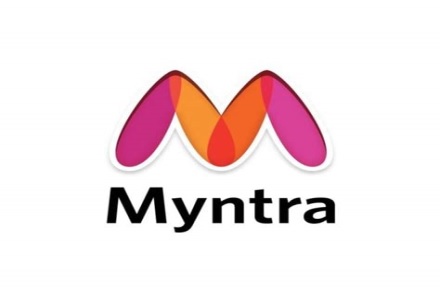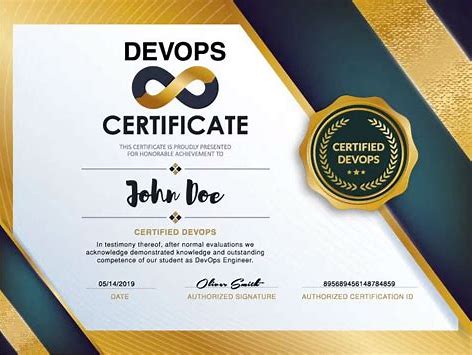Java
Java Certification Training
Heavenista technologies This comprehensive advanced Java training course in Heavenista covers everything, from fundamental methods to sophisticated programming abilities.
In addition to providing you with practical knowledge of JDBC and JUnit framework, the advanced Java course in Bangalore aids in your understanding of Core Java 8, arrays, loops, operators, constructors, and methods.
Why enroll for Java Certification training course?
The goal of this Java certification training program is to give you the information and abilities required to earn a certification as a Java developer. It covers the fundamentals of Java and gets you ready for Oracle’s Java certification tests. This course will help you master Java and advance your software development career, regardless of your level of programming experience.
Java Training Course Benfits
Whether you’re an experienced developer looking to broaden your skill set or a beginner looking to start a career in programming, enrolling in a Java training course has many advantages. The following are some main benefits of enrolling in a Java training course:
Cross-Platform Harmoniousness
Availability of a Vast Ecosystem of Frameworks and Libraries
Strong Demand and Competitive Pay
How to Get Ready for Certification Exams
Enhanced Ability to Solve Problems
Java skills Covered
Java is a versatile and widely used programming language, and it covers a broad range of skills and concepts. Here’s an overview of the key skills and topics typically covered in Java development:
- Syntax and Language Fundamentals:
- Variables and Data Types
- Operators and Expressions
- Control Flow (if statements, loops)
- Functions/Methods
- Exception Handling
- Object-Oriented Programming (OOP):
- Classes and Objects
- Inheritance
- Polymorphism
- Encapsulation
- Abstraction
- Data Structures:
- Arrays and ArrayLists
- Lists, Sets, and Maps
- Queues and Stacks
- Linked Lists, Trees, and Graphs
- File I/O:
- Reading and Writing Files
- Serialization
- Concurrency:
- Multithreading
- Synchronization
- Thread Pools
- Java Collections Framework:
- ArrayList, HashMap, HashSet, etc.
- Iterators
- Custom Collections
- Design Patterns:
- Singleton
- Factory
- Observer
- MVC, MVVM, etc.
- Database Access:
- JDBC (Java Database Connectivity)
- GUI Development:
- Swing or JavaFX
- Networking:
- Socket Programming
- HTTP Requests (with libraries like HttpURLConnection)
- Unit Testing:
- JUnit or TestNG
- Maven/Gradle:
- Build and Dependency Management
- IDE (Integrated Development Environment):
- Proficiency in using IDEs like Eclipse, IntelliJ IDEA, or NetBeans.
- Frameworks and Libraries:
- Spring Framework (Spring Boot, Spring MVC, Spring Data)
- Hibernate or JPA for ORM (Object-Relational Mapping)
- Apache Struts (for web applications)
- Java EE (Enterprise Edition) components like Servlets and JSPs
- Version Control:
- Git
- Web Development:
- Servlets and JSPs
- RESTful Web Services (JAX-RS)
- HTML, CSS, JavaScript
- Testing and Debugging:
- Profiling and debugging tools
- JUnit for unit testing
- Security:
- Handling Authentication and Authorization
- Protecting against common vulnerabilities (e.g., SQL injection, Cross-Site Scripting)
- Performance Optimization:
- Profiling and optimizing code
- Memory management
- Deployment:
- Packaging and deploying Java applications
- Docker and containerization
- Best Practices:
- Code readability and maintainability
- Code documentation
- Design principles (SOLID, DRY, KISS)
- Advanced Topics (depending on the specialization):
- Java 8 features (e.g., Lambdas, Streams)
- Java 9+ features (e.g., Modules)
- Reactive Programming (e.g., with Reactor or RxJava)
- Microservices architecture
It’s important to note that Java is a vast ecosystem, and developers may specialize in different areas based on their career paths and project requirements. Additionally, Java continues to evolve, so staying updated with the latest features and best practices is essential for Java developers.
Our Learners Works At
Top companies from all around the world have recruited upGrad alumini






Why LearnNow for Java Certification Training in India
Global Need for Java Developers: Due to Java’s widespread usage as one of the main programming languages, there is always a need for qualified Java developers. Possessing a Java certification can increase your employability both domestically and internationally.
Career Opportunities: Java is used by a large number of domestic and international companies for software development, and India boasts a thriving IT industry. You can access a multitude of career opportunities across multiple industries by obtaining a Java certification.
Greater Earning Potential: Java specialists with certifications frequently fetch higher pay than those without. Java certifications certify your abilities and knowledge, enabling you to app
Course Curriculum
- History and evolution of Java
- Setting up the Java development environment (JDK, IDEs)
- Writing and running your first Java program
- Variables and data types
- Operators and expressions
- Control flow (if statements, loops)
- Input and output (console, file I/O)
- Classes and objects
- Inheritance and polymorphism
- Encapsulation and access modifiers
- Abstraction and interfaces
- Exception handling
- Arrays and ArrayLists
- Lists, Sets, and Maps
- Queues and Stacks
- Linked lists, trees, and graphs
- ArrayList, HashMap, HashSet, etc.
- Iterators and loops
- Custom collections
- Reading and writing files
- Serialization and deserialization
- Threads and thread synchronization
- Thread pools and executors
- Handling exceptions
- Debugging techniques and tools
- Introduction to JavaFX or Swing (depending on the course)
- Creating simple graphical applications
- Connecting to databases – Performing database operations
- Socket programming – HTTP requests and RESTful web services
- Functional programming in Java – Stream API for data manipulation
- Introduction to JUnit or TestNG – Writing and running tests
- Common design patterns like Singleton, Factory, and Observer
- Depending on the course’s focus, you may cover frameworks like Spring or Hibernate.
- Introduction to Maven or Gradle
- Coding standards and best practices – Code documentation and comments – Code refactoring techniques
- Packaging Java applications – Docker and containerization (optional)
Servlets and JSPs – Basic web application development
- Depending on the course level and duration, advanced topics like Java 8 features, Java EE components, microservices, or reactive programming may be covered.
- Many Java courses include hands-on projects to apply the concepts learned throughout the course.